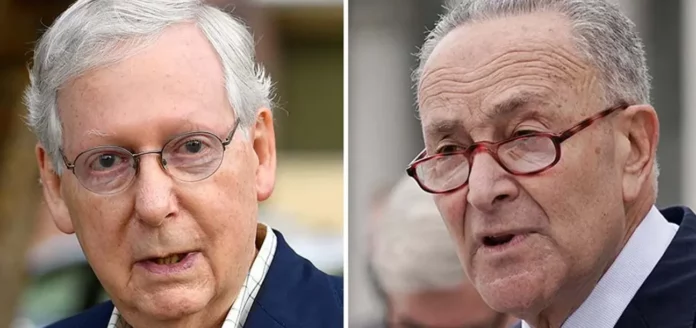After nearly a year of “Build back Better” talks, Senator Joe Manchin and Senate Majority Leader Chuck Schumer announced Wednesday an agreement on a highly scaled down reconciliation package.The package’s spending is $433 billion, which is less than one-sixth the $3 trillion bill Democrats were discussing at the time last year. Although it has fewer provisions, Democrats claim that it will generate $739 billion tax revenue.
Democrats had previously accepted provisions in the bill that would expand parts of ObamaCare’s Affordable Care Act (ACA), and lower the prices of prescription drugs.
A summary of Wednesday’s bill was published. It would allow Medicare to negotiate prescription drug prices and extend the ACA to 2025, according to the bill. Democrats claim that the ACA extension will cost $64 billion and that prescription drug reform will save $288 billion.
The tax, energy, and climate provisions were the areas where Democrats were stuck before Wednesday. Manchin is from an energy-producing state and often finds himself at odds with his party over climate policy. The moderate senator also voiced concerns about inflation and economic growth, saying repeatedly that Congress must ensure that it does not harm any economic policies.
According to the bill summary, the Manchin/Schumer package would invest a total of $369 billion in energy and climate initiatives. It includes a 15% corporate tax on businesses over $1 billion that is expected to raise $313Billion; increased IRS tax enforcement estimated to raise $124Billion; and closing the loophole for carried interest, estimated at $14B.
Republicans will likely criticize many provisions in the bill that promote clean energy and environment, as well as railing against higher taxes. Nearly $1.9 billion is allocated to a “Neighborhood Access and Equity Grant Program.” This money could be used to fix “gaps” in tree canopy coverage in underserved areas.
A provision in the bill provides $1.5 billion for tree planting and related activities. Priority will be given to projects that provide benefits to underserved areas and populations.
Another part of the bill includes $403 million to cover expenses for the IRS, including purchase and rental of passenger motor cars.
Barrasso said: “This reckless spending and tax spree will saddle working people with even higher prices and more tax hikes and more pain than what they are already feeling.”




